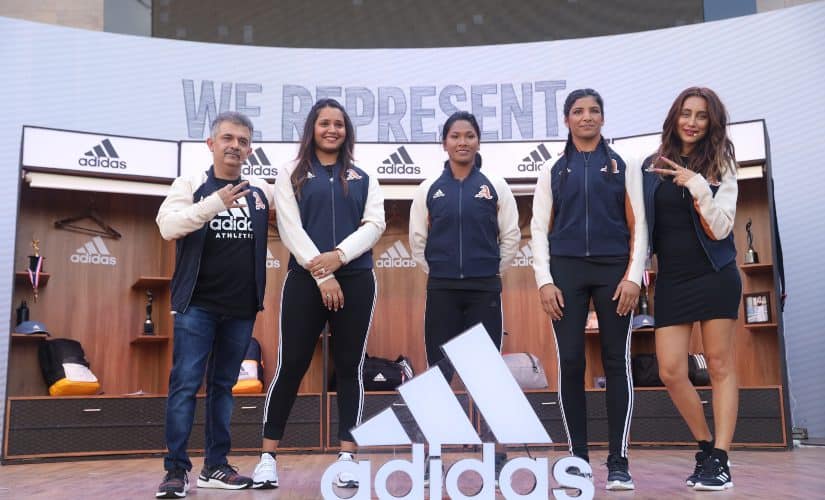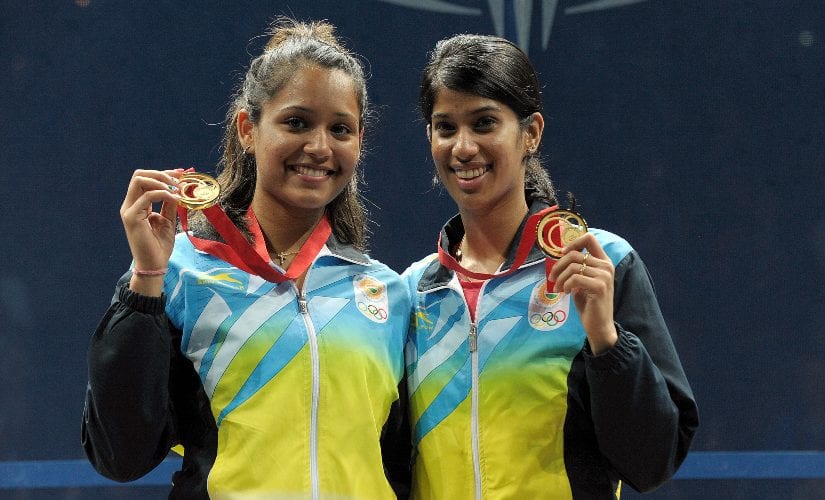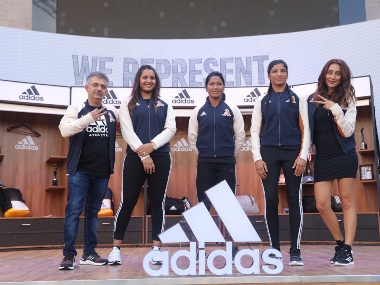Padhoge likhoge banoge nawab, kheloge kudoge hoge kharab (Study and you shall end up wise, play and you shall go astray), goes the adage meant to dissuade impressionable kids from sports as a career choice. It’s a life spent in perpetual uncertainty over one’s prospects, a career with a negligible shelf life and hence, no financial security; most of all, a choice, where injuries, heartbreaks and ruthless competition among peers abounds. Add to that, a woman opting to become a sportsperson and the wise old souls would shake their heads more vigorously. Reason? Their conviction in the pre-defined “gender-appropriate” roles for both men and women. They would imagine the woman as the pliant homemaker who should keep her in-laws happy, and nothing more. They would imagine the man pulling the more laborious work outside the house, and nothing less than that. For Simranjit Kaur though, gender stereotypes never hampered her progress as an athlete. That was, owing majorly to her mother who trampled upon the regressive patriarchal notions which could have held her two daughters back in life. “I never had a desire to pursue boxing until my mother mooted the idea and pushed me into it,” said Simranjit, who had won the bronze medal for India in the AIBA Women’s World Boxing Championships last year. [caption id=“attachment_7339431” align=“alignnone” width=“825”] Simranjit Kaur in action during the women’s Light Welter (64kg) category semi-final fight at the 2018 AIBA Women’s World Boxing Championships. AFP[/caption] “There weren’t many girls in boxing when I had started out so I’ve always sparred with boys in the ring. I have got a black eye today from one such session but you should see the other guy,” she quipped. Simranjit recounted how her mother wanted her two daughters to be self-sufficient and to never have to ask favours of someone. “She has always felt that sports is one of the few fields which is purely meritocratic, where one’s potential speaks for itself and is always rewarded.” Simranjit did face some opposition from her father who was against the idea of boxing. However, even he couldn’t resist for long. “My father came around too and I devoted myself to boxing completely.” When asked about the reason for her sudden immersion in boxing as a profession, she said that it was the prospect of financial stability which drew her towards the career. “My family wasn’t doing well financially. We survived on dal-roti and didn’t even have milk to drink.” “It was my drive to excel and pull my family out of the dire straits which materialised into the successes I’ve had thus far.” Heptathlete Swapna Barman’s tale of battling physical deformities and misfortune The desire to help her family escape poverty echoes in the narrative of another Indian sportsperson of note, heptathlete Swapna Barman who was awarded the Arjuna Award this year. “My main motivation for pursuing a career in sports was to get a job and support my family.” “It just so happens that the job is there and now I want to win laurels for my country wherever I can.” For Swapna though, a financially strained upbringing was further marred by a rare physical abnormality which had no cure. “I was born with six toes on each foot which made wearing running shoes a hazard,” said Swapna who won gold at the 2018 Asian Games. To fully comprehend the ramifications of her abnormality on her performance as an athlete, one should understand what a heptathlon – the event that Swapna partakes in – consists of. A typical heptathlon is conducted over two days, consisting of seven events where the participants are allocated points based on their standings in each of the events. It starts with the 100-metres hurdles, followed by the high jump, shot put, 200-metres sprints, long jump, javelin throw, and lastly, the final strain for the 800 metres race. Most heptathletes chalk out the events where they can go full throttle and accumulate points, making up for some of the other events which are their perceived weak links. However, Swapna chuckles while telling us that somehow, she keeps surprising herself. “People have always thought that I don’t stand much of a chance in the high jump because I am just 5’3” but during the Asian Games last year, I stood first in the high jump event,” said the diminutive Swapna who hails from Jalpaiguri in West Bengal. Interestingly, Swapna was solely focussing on high jump until 2013 when on the advice of her coach, she shifted to the heptathlon event. [caption id=“attachment_7338911” align=“alignnone” width=“825”]
 Dipika Pallikal, Swapna Barman and Simranjeet Kaur at the launch of the Adidas VRCT jacket in Delhi. Image courtesy: Kaizzen[/caption] For Swapna, it was the nagging pain in her feet from having to fit her six toes in a normal-sized shoe, which troubled her the most. While she had battled through the pain on her way to a notable win at the 2017 Asian Athletics Championships, it was something she could never grow accustomed with. That was because of the professional hazards of postponing a more permanent solution for the problem. Even as Swapna ran her way to glory in Jakarta, she was waging a lonely war within. She had been here before. The tiring events kicking in during the second day of the heptathlon and with it, her toes flaring up from being forcibly fitted into shoes sized smaller than required. Swapna abstained from complaining though and produced her best result with her run for the gold medal at the Jakarta Asian Games. She thus became the first Indian to clinch gold in the Asian Games heptathlon. With that win, the spotlight shone brightly on her triumph in the face of adversities and her appeal for customised shoes was finally heard. Then Sports Minister Rajyavardhan Singh Rathore was quick to respond and directed the authorities to take action. Sportswear giant Adidas took up the task. “Last year, I went to Nuremberg, Germany with Adidas for my customised shoes. Since then, I’ve had it easy as I can finally focus on my sprints without that persistent pain I’ve always dreaded while wearing shoes,” said Swapna at an Adidas event in the capital. With her biggest weakness now negated through the customised shoes, there’s no telling what the 22-year-old Swapna can achieve in the future. Of battling the powers that be: Dipika Pallikal While Simranjeet battled against societal notions of gender-appropriateness to forge a career in a male-dominated sport, squash player Dipika Pallikal went up against the powers that be in her quest to secure equal pay for male and female squash players in India. “I’m very bad with numbers but was randomly flitting through the entry forms for the national squash championships and stumbled upon the place where they mention the prize money,” said Dipika. “The gap in pay between male and female squash players was glaring. If the winner of the women’s singles event was paid ₹50,000, the winner of the men’s event was paid ₹2,00,000.” “It never made sense to me because I’ve always put in the same amount of hard work as my male peers so you can’t be telling me that I don’t deserve the same amount of prize money because I’m a woman.” Dipika, who is the only Indian female squash player to have broken into the Top 10 of the world rankings, chose to boycott the national championships as a protest against the inequality of pay. The Squash Rackets Federation of India (SRFI) couldn’t turn a blind eye when their most decorated athlete was choosing to sit out of the prestigious Senior National Squash Championships, year on year. Finally, the SRFI — which was coming under intense media scrutiny for its shoddy handling of its players — wilted under the pressure and yielded to Dipika’s demands for an equal prize purse for both male and female squash players participating in the national championships. [caption id=“attachment_7338931” align=“alignnone” width=“825”]
Dipika Pallikal, Swapna Barman and Simranjeet Kaur at the launch of the Adidas VRCT jacket in Delhi. Image courtesy: Kaizzen[/caption] For Swapna, it was the nagging pain in her feet from having to fit her six toes in a normal-sized shoe, which troubled her the most. While she had battled through the pain on her way to a notable win at the 2017 Asian Athletics Championships, it was something she could never grow accustomed with. That was because of the professional hazards of postponing a more permanent solution for the problem. Even as Swapna ran her way to glory in Jakarta, she was waging a lonely war within. She had been here before. The tiring events kicking in during the second day of the heptathlon and with it, her toes flaring up from being forcibly fitted into shoes sized smaller than required. Swapna abstained from complaining though and produced her best result with her run for the gold medal at the Jakarta Asian Games. She thus became the first Indian to clinch gold in the Asian Games heptathlon. With that win, the spotlight shone brightly on her triumph in the face of adversities and her appeal for customised shoes was finally heard. Then Sports Minister Rajyavardhan Singh Rathore was quick to respond and directed the authorities to take action. Sportswear giant Adidas took up the task. “Last year, I went to Nuremberg, Germany with Adidas for my customised shoes. Since then, I’ve had it easy as I can finally focus on my sprints without that persistent pain I’ve always dreaded while wearing shoes,” said Swapna at an Adidas event in the capital. With her biggest weakness now negated through the customised shoes, there’s no telling what the 22-year-old Swapna can achieve in the future. Of battling the powers that be: Dipika Pallikal While Simranjeet battled against societal notions of gender-appropriateness to forge a career in a male-dominated sport, squash player Dipika Pallikal went up against the powers that be in her quest to secure equal pay for male and female squash players in India. “I’m very bad with numbers but was randomly flitting through the entry forms for the national squash championships and stumbled upon the place where they mention the prize money,” said Dipika. “The gap in pay between male and female squash players was glaring. If the winner of the women’s singles event was paid ₹50,000, the winner of the men’s event was paid ₹2,00,000.” “It never made sense to me because I’ve always put in the same amount of hard work as my male peers so you can’t be telling me that I don’t deserve the same amount of prize money because I’m a woman.” Dipika, who is the only Indian female squash player to have broken into the Top 10 of the world rankings, chose to boycott the national championships as a protest against the inequality of pay. The Squash Rackets Federation of India (SRFI) couldn’t turn a blind eye when their most decorated athlete was choosing to sit out of the prestigious Senior National Squash Championships, year on year. Finally, the SRFI — which was coming under intense media scrutiny for its shoddy handling of its players — wilted under the pressure and yielded to Dipika’s demands for an equal prize purse for both male and female squash players participating in the national championships. [caption id=“attachment_7338931” align=“alignnone” width=“825”] Gold medallists Dipika Pallikal (L) and Joshana Chinappa pose with their medals after winning the women’s doubles event during the 2014 Commonwealth Games in Glasgow, Scotland. AFP[/caption] Dipika, for her part, returned to the Indian squash set-up after an arduous wait of three years — from 2012 to 2015 — triumphantly by winning the 2016 National Championships. For Dipika, her standing in the pecking order for Indian squash players pits her as the voice for the entire community. The Chennai-born player continues to speak up about her concerns with the inept administration of the SRFI, striving continually in her bid to ensure that India remains relevant in international squash competitions. Those in the administration have often dismissed Pallikal’s concerns, likening them to those of a disgruntled “employee” who doesn’t speak for all the players but only herself. However, Pallikal backs her concerns with plenty of insights into the rigours of professional squash and the demands it places on the players, which are seldom met by the federation in India. An example? The SRFI hasn’t hired a full-time coach for the Indian squash team since April 2018 and is now pondering upon giving up on the practice altogether. Instead, the federation is pondering over hiring event-based coaches for specific tournaments. Dipika, understandably, has a problem with the plan. “Event-based coaching isn’t a long-term solution for any sport. “We can’t have an elite sport in the country without a full-time coach. The previous coach, Achraf Karargu from Egypt left on a bitter note and the national coach has gone on to become something in the federation so who do your players fall back on?” she asked. “We can’t have a new coach who comes in a month before a big tournament, has no clue about your style of play, no prior communication with you and starts advising you about stuff. There’s no student-coach relationship then and you can forget about growing the sport with such a move,” she signed off.
Gold medallists Dipika Pallikal (L) and Joshana Chinappa pose with their medals after winning the women’s doubles event during the 2014 Commonwealth Games in Glasgow, Scotland. AFP[/caption] Dipika, for her part, returned to the Indian squash set-up after an arduous wait of three years — from 2012 to 2015 — triumphantly by winning the 2016 National Championships. For Dipika, her standing in the pecking order for Indian squash players pits her as the voice for the entire community. The Chennai-born player continues to speak up about her concerns with the inept administration of the SRFI, striving continually in her bid to ensure that India remains relevant in international squash competitions. Those in the administration have often dismissed Pallikal’s concerns, likening them to those of a disgruntled “employee” who doesn’t speak for all the players but only herself. However, Pallikal backs her concerns with plenty of insights into the rigours of professional squash and the demands it places on the players, which are seldom met by the federation in India. An example? The SRFI hasn’t hired a full-time coach for the Indian squash team since April 2018 and is now pondering upon giving up on the practice altogether. Instead, the federation is pondering over hiring event-based coaches for specific tournaments. Dipika, understandably, has a problem with the plan. “Event-based coaching isn’t a long-term solution for any sport. “We can’t have an elite sport in the country without a full-time coach. The previous coach, Achraf Karargu from Egypt left on a bitter note and the national coach has gone on to become something in the federation so who do your players fall back on?” she asked. “We can’t have a new coach who comes in a month before a big tournament, has no clue about your style of play, no prior communication with you and starts advising you about stuff. There’s no student-coach relationship then and you can forget about growing the sport with such a move,” she signed off.
Three Indian women and their battle past hardships in the form of poverty, gender inequality and lack of support from sports federations, to emerge the victor
Advertisement
End of Article


)

)
)
)
)
)
)
)
)



